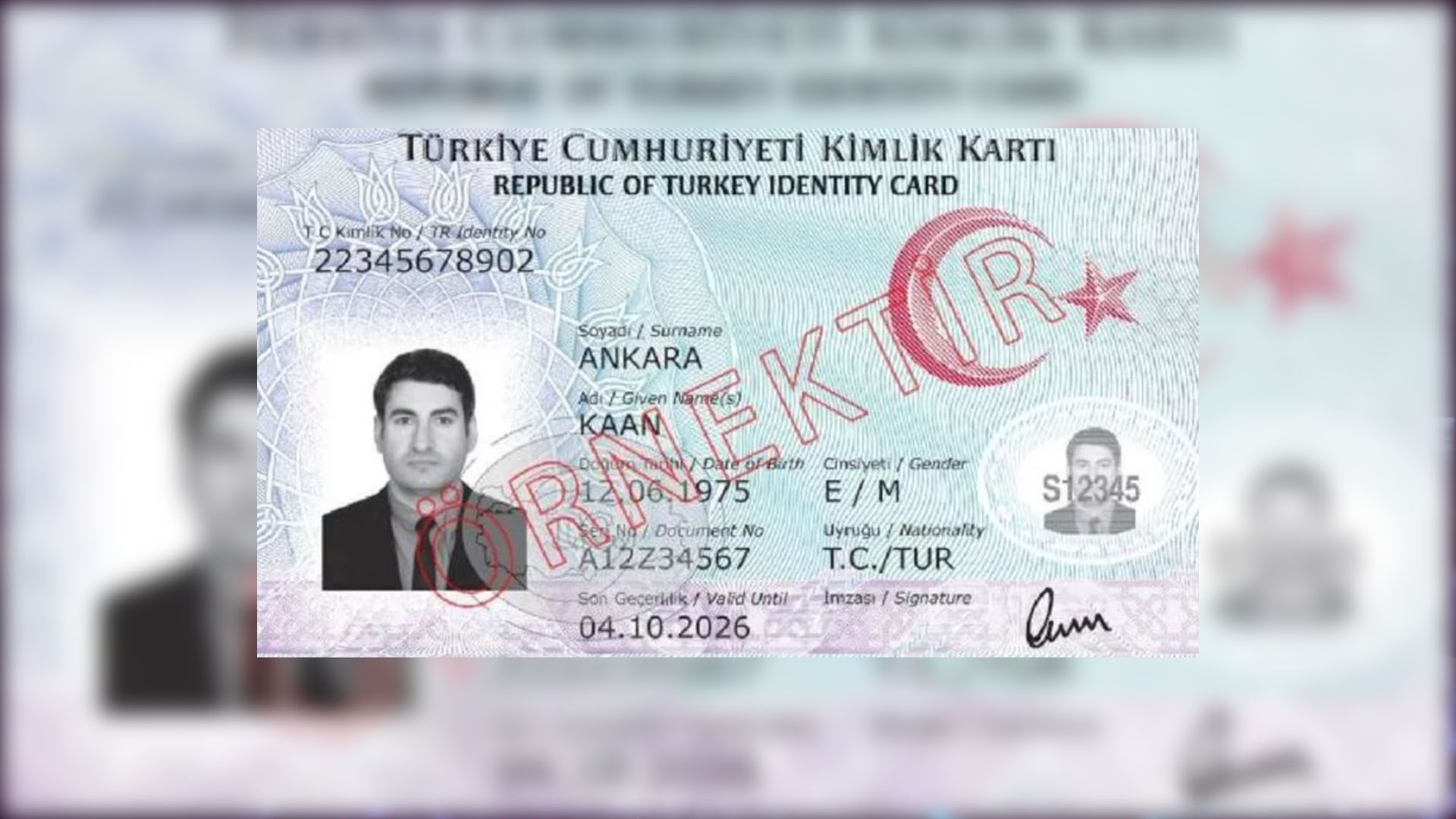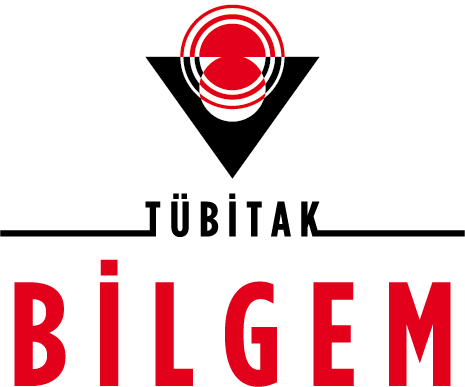UEKAE
Projects
The Completed Projects

GÖKTÜRK-1 Satellite National Crypto Subsystem

E-Identity Project – TR Identity Card Project

FORENSIC (Next Generation Document Inspection Systems)

BIGA

BKYS (Document Evidence Management System)

BAG (Blockchain Research Network)

TVEG Message Operating System (TVEG MIS)

FKDS-2011
The Other CompletedProjects
The National Electronic Crypto Key Distribution System was developed. EKADAS generates, stores and manages keys to be used for secure communication in crypto devices.
A system that manages the keys of crypto devices that ensure the security of the TAF's TAFICS network has been developed.
Within the scope of the project, the national KAYC-S device and NATO approved KAYC-S/N device, which hardware provides the security of the keys and cryptographic data at TOP SECRET level, have been developed.
National KAYC-S device is designed as a new generation end user device capable of performing cryptographic operations in order to securely receive the crypto keys and cryptographic data used by crypto devices in the inventory of the Turkish Armed Forces, to store them encrypted with the national algorithm, to carry them and to distribute them with various key loading protocols.
The purpose of the LST (Land Ship Tank - Amphibious Ship) MIS Project is to develop the Message Operating System (MIS), which will be provided for 2 LSTs and has the features of displaying, storing and printing formatted messages coming from the Communication System.
In addition to hardware products such as Synchronous Serial Channel Switching Device, Mechanical Switching Device and Energy Distribution Unit, ACP 127 Software Package, STANAG 5066 Protocol Software, STANAG 5066 Application Software, Data Backup Software and X.400 Messaging System are being developed.
It is expected that the portable biosensor / biosensor based diagnostic devices developed as a result of the studies carried out within the scope of the project, which allow on-site detection, will be widely used in measurements to be made in many fields such as medical diagnosis, public health, bioprocess control, agriculture and food industry and environmental monitoring in the very near future. Among the devices developed are the Bilirubin Measuring Device, which is used to measure the bilirubin (jaundice) value completely painlessly and optically without the need for blood collection in babies, Environmental Measuring Devices (dissolved oxygen, pH) that can be used in the measurement of pollution in wastewater and online monitoring of areas such as streams, rivers, dams, Wastewater Treatment Plants. , conductivity, etc.), a portable respirator (ventilator) developed for patients who need respiratory support and can work with a battery can be given as an example. In addition, by using the technology and device prototypes developed within the scope of the Project, it is possible to conduct exemplary studies on health, energy, food, forensic applications and environmental safety in our country.
Within the scope of this project, YİTAL has designed and manufactured the digital crypto integrated devices in UEKAE's crypto devices with its indigenous CMOS technology. Tens of thousands of digital integrated devices produced at YİTAL are actively used in the field.
Within the scope of the European Union 6th Framework, a memory structure resistant to side channel analysis was developed and manufactured in Germany. The memory worked successfully. YİTAL took part in the tests of the SCAR integrated circuit produced in the project with other project partners.
Contact smart cards with EAL5+ certification, designed at YİTAL and manufactured abroad, were successfully used in Bolu pilot studies and then distributed to be used as identity cards in Cyprus and Turkey.
The readout circuit that processes the data from the laser proximity sensor was designed at YİTAL and manufactured at YİTAL. The readout circuit has passed the tests successfully and the project has been completed.
Within the scope of the project, we are proceeding with the business model of making production on order.
Our Completed European Union Projects
- The Completed Projects
- The Ongoing Projects
The FP7 ORIGINS Project aimed to investigate passport document production and distribution requirements within the European Union Member States/Associated Countries. During the ORIGINS Project research, the passport application/use processes and passport application documents applied by the EU and EU candidate countries were analyzed in detail. Evaluation reports were prepared for each country, and the common nonconformities were detailed with a consolidation study. During the detection of security vulnerabilities and threats that may arise from these vulnerabilities, the methods we recommend were used.
In addition, technical studies were carried out regarding the biometric choices we applied in the TR ID Card and the situations detected in the usage areas in order to eliminate security vulnerabilities.
The INGRESS Project, prepared by TÜBİTAK BİLGEM UEKAE with 10 partners from 8 different European countries, has been awarded support under the FP7 Security Call. The INGRESS Project, led by Morpho from France, was managed by TÜBİTAK BİLGEM UEKAE for Work Package 1 – Requirements Analysis. Within the scope of the INGRESS Project, new imaging technologies were studied for fingerprint readers that can be used in applications such as e-identity, border security, and e-passport. Within the scope of the project, an ultrasonic fingerprint reader and an OCT (Optical Coherence Tomography) based fingerprint reader were developed. Thus, high quality fingerprint images were obtained from fingers that could not be obtained with standard optical-based fingerprint readers.
The FP7 ORIGINS Project aimed to investigate the requirements for the production and distribution of passport documents within the Member States/ Associated Countries of the European Union. During the ORIGINS Project research, passport application/use processes and passport application documents applied by EU and EU candidate countries were analyzed in detail. Assessment reports were prepared for each country and the common nonconformities identified were detailed through a consolidation study. During the identification of security vulnerabilities and the threats that may arise from these vulnerabilities, the methods we proposed were used. In addition, in order to eliminate security vulnerabilities, technical studies were carried out regarding the biometric choices we have implemented in the Turkish ID Card and the situations identified in the areas of use.
The aim of the eSENS Project, of which TÜBİTAK BİLGEM UEKAE is the country coordinator, is to integrate the outputs of various Pilot A Projects (STORK, epSOS, PEPPOL, eCodex and SPOCS) previously initiated in the field of public services and to consolidate the basic building blocks put forward by these projects. It aims to finalize some of the key systems needed for the digital internal market and integrate these structures in key application areas such as e-procurement, business mobility and e-health. Beyond the existing pilot projects, the project has also opened the door to new application areas.
The Ministry of Justice and TÜBİTAK BİLGEM UEKAE took part in the e-Codex Project, which is being carried out across Europe in the field of e-law. The overall objective of the project, which is funded under the Information and Communication Technologies Policy Support Program (ICT-PSP), one of the components of the Competitiveness and Innovation Framework Program supported by the European Commission and to which Turkey is a party by providing financial support, is to ensure that justice systems are integrated and communicate electronically and to enable mutual transactions between national judicial systems through a common platform and to exchange judicial documents, decisions and information electronically. In addition, the eCodex Project aims to enable horizontal interoperability between the activities of the member states, to establish a secure network for the judiciary, and to provide electronic identity management (e.g. for lawyers, courts, judges).
Supported under the 2007 ICT PSP Call and building on the experience gained from the STORK Project, the EU's main e-identity project, this project aimed to ensure the convergence of the public and private sectors in an operational framework and infrastructure for identity verification. The project was based on secure storage and sharing of data, and pilots were carried out on "e-learning and academic qualifications", "e-banking", "public services for business" and "e-health". In addition to Turkey, 62 partners from Spain, Austria, Belgium, Czech Republic, Estonia, France, Greece, Iceland, Italy, Lithuania, Luxembourg, Luxembourg, Netherlands, Portugal, Slovakia, Slovenia, Slovenia, Sweden, Switzerland and the United Kingdom took part in the project, which is closely related to the main e-health and e-government projects such as epSOS, PEPPOL, SPOCS and eCODEX, which are being carried out under the ICT PSP in the European Union.
Blockchain Technologies for Vocational Education (BLUEDU) – ERASMUS+ Project
The aim of the BLUEDU Project is to contribute to the development of innovative digital learning materials to improve the knowledge and digital competencies of vocational education and training educators in the field of Information and Communication Technologies, to reduce educational barriers to help their students contribute to their career development and to prepare them for business life. The project; In order to achieve its goals, activities will be carried out to determine the teaching objectives and to create the teaching outline, to develop the content of the teaching material, to develop and validate the e-book.
(Project stakeholders: TÜBİTAK BİLGEM, EDUJI, EOLAS, AGITTEX.)
Project number: 2021-2-TR01-KA210-VET-000050121
The Completed Projects
GÖKTÜRK-1 Satellite National Crypto Subsystem developed by TÜBİTAK BİLGEM is a system that provides secure transmission of commands to be sent from ground stations to the satellite and the high resolution image received from the satellite to ground stations.
The National Crypto Subsystem includes national crypto devices and associated key management and upload devices integrated into the satellite and ground stations. All developed devices have device level crypto analysis, COMSEC and TEMPEST approvals.
The GÖKTÜRK-1 Satellite National Crypto Subsystem has been in use since December 2016, when the GÖKTÜRK-1 Satellite was launched, thus making the crypto device integrated into the satellite the first national equipment to gain history in this field.
The National Electronic Crypto Key Distribution System was developed. EKADAS generates, stores and manages keys to be used for secure communication in crypto devices.
A system that manages the keys of crypto devices that ensure the security of the TAF's TAFICS network has been developed.
Within the scope of the project, the national KAYC-S device and NATO approved KAYC-S/N device, which hardware provides the security of the keys and cryptographic data at TOP SECRET level, have been developed.
National KAYC-S device is designed as a new generation end user device capable of performing cryptographic operations in order to securely receive the crypto keys and cryptographic data used by crypto devices in the inventory of the Turkish Armed Forces, to store them encrypted with the national algorithm, to carry them and to distribute them with various key loading protocols.
The FKDS Project was carried out to ensure the functionality of the fiberoptic network infrastructure of TAFICS, the TAF's strategic communication environment of great importance, and to protect it from threats by continuously auditing it through a secure, nationally designed, online redundant, central audit unit, its client audit units and remote audit units.
It is a project to develop a gold-based digital money system that provides privacy. Homomorphic encryption offers Zero Knowledge Proofs.
A smart contract-based system for managing proof of existence and integrity of Real World Contract Documents.
Establishment of the National Blockchain research infrastructure.
Blockchain projects development infrastructure -Blockchain Test Networks.
The purpose of the MİLGEM 3-4 Message Operating System Project is to develop the Message Operating System (MİS), which will be deployed on the MİLGEM 3rd and 4th Ships to be built by the Naval Forces Command within the framework of the MİLGEM Project, and which has the ability to display, store and print formatted messages from the Communication System, a subsystem of the MİLGEM Combat System. In addition to hardware products such as Synchronous Serial Channel Switching Device, Mechanical Switch Device and Energy Distribution Unit, ACP 127 Software Package, STANAG 5066 Protocol Software, STANAG 5066 Application Software, Data Backup Software and X.400 Messaging System are being developed.
The purpose of the Test and Training Ship (TVEG) Message Operating System (MIS) Project is to develop the Message Operating System (MIS), which will be provided for 1 TVEG and has the features of displaying, storing and printing formatted messages coming from the Communication System.
In addition to hardware products such as Synchronous Serial Channel Switching Device, Mechanical Switching Device and Energy Distribution Unit, ACP 127 Software Package, STANAG 5066 Protocol Software, STANAG 5066 Application Software, Data Backup Software and SMTP Messaging System are developed.
The purpose of the LST (Land Ship Tank - Amphibious Ship) MIS Project is to develop the Message Operating System (MIS), which will be provided for 2 LSTs and has the features of displaying, storing and printing formatted messages coming from the Communication System.
In addition to hardware products such as Synchronous Serial Channel Switching Device, Mechanical Switching Device and Energy Distribution Unit, ACP 127 Software Package, STANAG 5066 Protocol Software, STANAG 5066 Application Software, Data Backup Software and X.400 Messaging System are being developed.
It is aimed to renew the messaging infrastructure of the elements of the Navy on the basis of modern technologies and protocols. Within the scope of the project, messaging software was updated by considering international standards and national needs. Thus, an uninterrupted, integrated, secure and reliable messaging system has been allocated in the tactical field.
Contemporary hyperspectral imaging technology has been used for the first time in the world for document examination, thus, forgery cases have been detected in many documents that cannot be resolved with current methods and devices. Developed to examine the authenticity of all kinds of documents and documents, the device is a device that helps to detect forgery on documents such as money, checks, promissory notes, passports with current scientific methods, based on hyperspectral imaging technology. All the following operations can be done through the device.
- Detecting differences-outliers using the ink analysis method
- Detecting the presence of inks that look the same but have different chemistry using a hyperspectral analysis procedure
- Revealing hidden or deleted information
- Obtain a 3D profile of features such as pen printing
- Display of absorption, reflectance, transmittance and fluorescence values of documents examined using hyperspectral analysis
- Examine Watermark, Fulage traces, Micro-text features
- Inspection in the UV field of view
- Inspection in the IR field of view
- Examination of printed and embossed features
It is expected that the portable biosensor / biosensor based diagnostic devices developed as a result of the studies carried out within the scope of the project, which allow on-site detection, will be widely used in measurements to be made in many fields such as medical diagnosis, public health, bioprocess control, agriculture and food industry and environmental monitoring in the very near future. Among the devices developed are the Bilirubin Measuring Device, which is used to measure the bilirubin (jaundice) value completely painlessly and optically without the need for blood collection in babies, Environmental Measuring Devices (dissolved oxygen, pH) that can be used in the measurement of pollution in wastewater and online monitoring of areas such as streams, rivers, dams, Wastewater Treatment Plants. , conductivity, etc.), a portable respirator (ventilator) developed for patients who need respiratory support and can work with a battery can be given as an example. In addition, by using the technology and device prototypes developed within the scope of the Project, it is possible to conduct exemplary studies on health, energy, food, forensic applications and environmental safety in our country.
The aim of the TR Identity Card Project is to develop a smart card-based electronic identity verification system that enables electronic authentication at different security levels, thus providing secure access to the services offered in the electronic environment.
For this purpose, the following products were developed within the scope of the project:
– Smart Card Chip (UKTUM)
– Smart Card Operating System (AKIS)
– Card Management and Management System (KYS)
– Secure Card Access Devices (KEC)
– Electronic Authentication System (EKDS)
The electronic ID card, the pilot implementation of which was successfully completed in Bolu province, contains the cardholder's identity information, digital photograph and biometric data (fingerprint, finger vein print and palm print). In addition to the identity information it contains, one of the most important features of the ID card is that it has visual and electronic security elements. The electronic security elements of the card are provided by the smart card operating system (AKİS) and the smart card integrated circuit (UKTÜM), which are developed nationally. AKİS has EAL4+ and UKTÜM has EAL5 common criteria level security certificates.
The Secure Card Access Device (KEC) has been developed to verify that the identity card is issued by an authorized institution and that the person carrying the card is actually the owner of the card for applications that provide services in electronic environment. Thanks to a Secure Access Module (GEM), also provided by TÜBİTAK BİLGEM, the KEC can securely communicate with the ID card and read the biometric data of the cardholder inside the card. During the project, in order for the KEC to be produced by the industry, work was carried out with the Turkish Standards Institute to develop a four-part "Secure Card Access Devices for Turkish ID Cards" standard. For this purpose, a globally recognized protection profile approved at the level of the common criterion EAL4 was prepared and published.
Within the scope of this project, YİTAL has designed and manufactured the digital crypto integrated devices in UEKAE's crypto devices with its indigenous CMOS technology. Tens of thousands of digital integrated devices produced at YİTAL are actively used in the field.
Within the scope of this project, NTDS (Naval Tactical Data System) interface communication IC and board were produced with the 24 V high voltage CMOS technology developed in YİTAL and sold to the navy.
Within the scope of the European Union 6th Framework, a memory structure resistant to side channel analysis was developed and manufactured in Germany. The memory worked successfully. YİTAL took part in the tests of the SCAR integrated circuit produced in the project with other project partners.
Contact smart cards with EAL5+ certification, designed at YİTAL and manufactured abroad, were successfully used in Bolu pilot studies and then distributed to be used as identity cards in Cyprus and Turkey.
The readout circuit that processes the data from the laser proximity sensor was designed at YİTAL and manufactured at YİTAL. The readout circuit has passed the tests successfully and the project has been completed.
Within the scope of the project, we are proceeding with the business model of making production on order.
The FP7 ORIGINS Project aimed to investigate passport document production and distribution requirements within the European Union Member States/Associated Countries. During the ORIGINS Project research, the passport application/use processes and passport application documents applied by the EU and EU candidate countries were analyzed in detail. Evaluation reports were prepared for each country, and the common nonconformities were detailed with a consolidation study. During the detection of security vulnerabilities and threats that may arise from these vulnerabilities, the methods we recommend were used.
In addition, technical studies were carried out regarding the biometric choices we applied in the TR ID Card and the situations detected in the usage areas in order to eliminate security vulnerabilities.
The INGRESS Project, prepared by TÜBİTAK BİLGEM UEKAE with 10 partners from 8 different European countries, has been awarded support under the FP7 Security Call. The INGRESS Project, led by Morpho from France, was managed by TÜBİTAK BİLGEM UEKAE for Work Package 1 – Requirements Analysis. Within the scope of the INGRESS Project, new imaging technologies were studied for fingerprint readers that can be used in applications such as e-identity, border security, and e-passport. Within the scope of the project, an ultrasonic fingerprint reader and an OCT (Optical Coherence Tomography) based fingerprint reader were developed. Thus, high quality fingerprint images were obtained from fingers that could not be obtained with standard optical-based fingerprint readers.
The FP7 ORIGINS Project aimed to investigate the requirements for the production and distribution of passport documents within the Member States/ Associated Countries of the European Union. During the ORIGINS Project research, passport application/use processes and passport application documents applied by EU and EU candidate countries were analyzed in detail. Assessment reports were prepared for each country and the common nonconformities identified were detailed through a consolidation study. During the identification of security vulnerabilities and the threats that may arise from these vulnerabilities, the methods we proposed were used. In addition, in order to eliminate security vulnerabilities, technical studies were carried out regarding the biometric choices we have implemented in the Turkish ID Card and the situations identified in the areas of use.
The aim of the eSENS Project, of which TÜBİTAK BİLGEM UEKAE is the country coordinator, is to integrate the outputs of various Pilot A Projects (STORK, epSOS, PEPPOL, eCodex and SPOCS) previously initiated in the field of public services and to consolidate the basic building blocks put forward by these projects. It aims to finalize some of the key systems needed for the digital internal market and integrate these structures in key application areas such as e-procurement, business mobility and e-health. Beyond the existing pilot projects, the project has also opened the door to new application areas.
The Ministry of Justice and TÜBİTAK BİLGEM UEKAE took part in the e-Codex Project, which is being carried out across Europe in the field of e-law. The overall objective of the project, which is funded under the Information and Communication Technologies Policy Support Program (ICT-PSP), one of the components of the Competitiveness and Innovation Framework Program supported by the European Commission and to which Turkey is a party by providing financial support, is to ensure that justice systems are integrated and communicate electronically and to enable mutual transactions between national judicial systems through a common platform and to exchange judicial documents, decisions and information electronically. In addition, the eCodex Project aims to enable horizontal interoperability between the activities of the member states, to establish a secure network for the judiciary, and to provide electronic identity management (e.g. for lawyers, courts, judges).
Supported under the 2007 ICT PSP Call and building on the experience gained from the STORK Project, the EU's main e-identity project, this project aimed to ensure the convergence of the public and private sectors in an operational framework and infrastructure for identity verification. The project was based on secure storage and sharing of data, and pilots were carried out on "e-learning and academic qualifications", "e-banking", "public services for business" and "e-health". In addition to Turkey, 62 partners from Spain, Austria, Belgium, Czech Republic, Estonia, France, Greece, Iceland, Italy, Lithuania, Luxembourg, Luxembourg, Netherlands, Portugal, Slovakia, Slovenia, Slovenia, Sweden, Switzerland and the United Kingdom took part in the project, which is closely related to the main e-health and e-government projects such as epSOS, PEPPOL, SPOCS and eCODEX, which are being carried out under the ICT PSP in the European Union.













